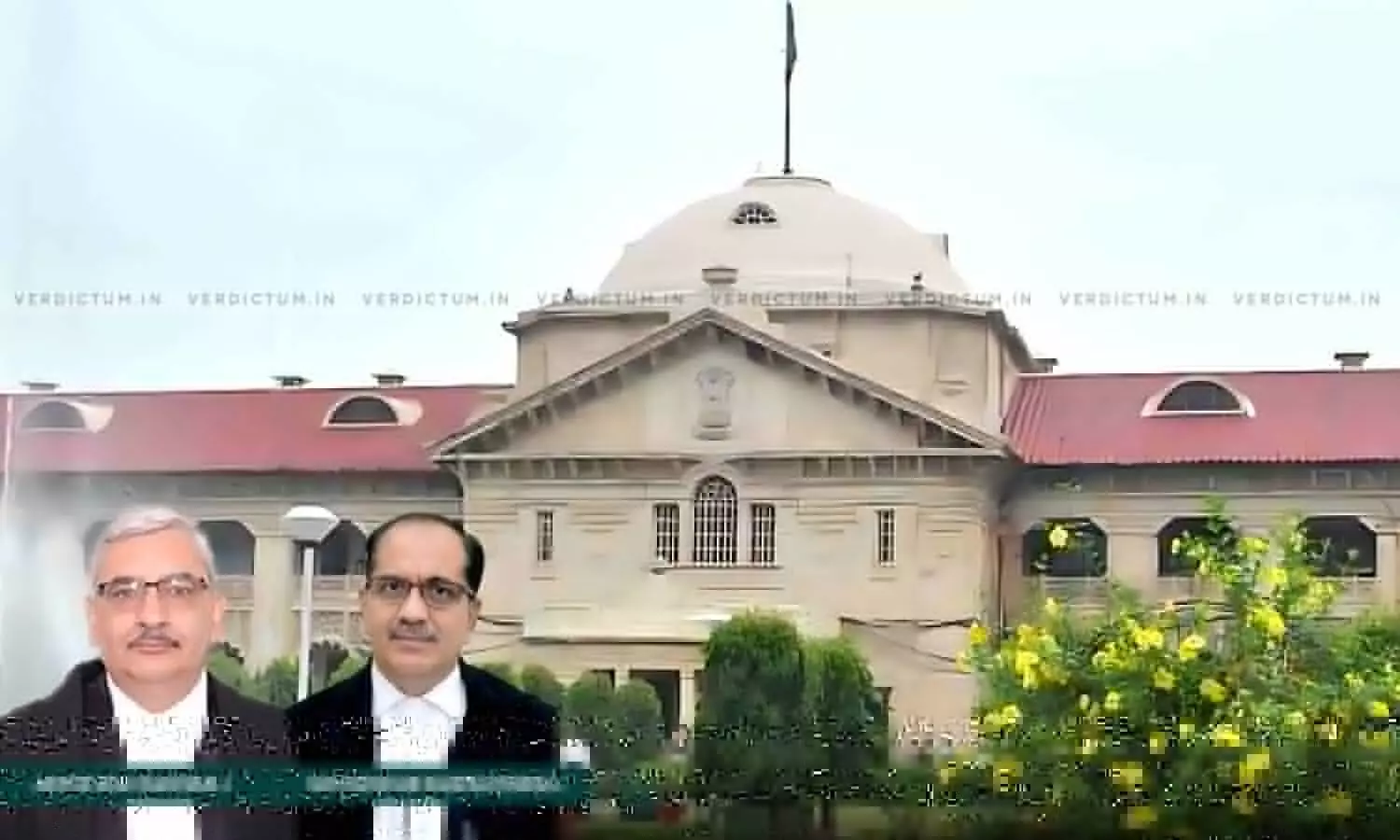
Detention Under PIT NDPS Act Without Any Material On Record Is Harsh: Allahabad HC Orders Release Of Detenue
 |
|The Allahabad High Court ordered release of a person detained under the Prevention Of Illicit Traffic in Narcotic Drugs And Psychotropic Substances Act, 1988, observing that his detentiion without any material on record is harsh.
The Court was hearing a Writ in the nature of Habeas Corpus for quashing the order under Provision 3 (1) of the Prevention Of Illicit Traffic in Narcotic Drugs and Psychotropic Substances Act, 1988 and to release the petitioner from judicial custody.
The bench of Justice Arvind Singh Sangwan and Justice Ram Manohar Narayan Mishra observed, “With regard to second F.I.R…. it is admitted case of the prosecution that the petitioner was not named in the F.I.R. and his name surfaced on the disclosure of an accused who was arrested at the spot. Therefore, the petitioner was neither arrested at the spot by the police nor any recovery of narcotic drugs and psychotropic substances was effected from him. In the absence of the Court verdict holding him guilty of offence, impugned order of detention is very harsh.”
Advocate Chandrakesh Mishra appeared for the Appellant and G.A. Alok Ranjan Mishra appeared for the Respondent.
Brief Facts-
The petitioner, Faizan Khan, was initially arrested and granted bail under Section 8/21 of the Narcotic Drugs And Psychotropic Substances Act, 1985. He was later acquitted after trial. Subsequently, he surrendered after being nominated as accused on the disclosure of co-accused in another FIR and was granted bail again. However, he was later detained based on an order which he claimed was not served to him until his arrest. He challenged both orders through this writ petition.
The Court stated that as the petitioner after facing a full-length trial stood acquitted in the first FIR, the very base of this FIR in both impugned orders stand vitiated.
The Court noted that in the impugned rejection order, no reasons were assigned for dealing with the judgment of acquittal of the petitioner. According to the Court, the order was non speaking order as in one line it was stated that the representation of the petitioner stood rejected.
The Court further noted that nothing was stated in the order that any opportunity of hearing was granted to the petitioner before passing of the order.
The Court relied on the decision of the Supreme Court in Tofan Singh vs. State of Tamil Nadu, (2013) 16 SCC 31 and observed, “…it will be matter of trial whether confession recorded by the police of a co- accused while in police custody will be admissible against the co-accused i.e. petitioner when after his arrest, no recovery of narcotic drugs and psychotropic substances is effected.”
The Court emphasized that the petitioner regularly appeared before the Court in earlier FIR therefore, according to the Court the grounds taken in the impugned orders that the petitioner was hiding himself were incorrect.
Finally, the Court stated that the material forming the basis of the opinion of the competent authority i.e. proposal of the Sponsoring Authority and recommendation of the Screening Authority, to pass impugned orders were never supplied to the petitioners and he was not afforded a proper opportunity of hearing and the impugned order of rejection was totally non speaking order.
Accordingly, the Court set aside the impugned orders and allowed the petition.
Cause Title: Faizan Khan v. Addhikshak Janpadkendriya Karagar Bareilly (Neutral Citation: 2024:AHC:87173-DB)
Appearance:
Appellant: Adv. Chandrakesh Mishra
Respondent: G.A. A.S.G.I. Alok Ranjan Mishra